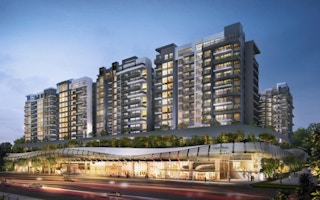Singapore real estate firm CapitaLand this year passed a new milestone on its path to sustainability, said senior managers at a Friday press briefing.
The firm, which officially started Environment, Social and Governance (ESG) initiatives in 2000, launched a review of its sustainability progress and policies this month.
Recent accomplishments include becoming one of only 10 Singapore-based firms to have its sustainability report verified in 2012 by the Global Reporting Initiative (GRI), the developer of the most widely used corporate social responsibility (CSR) reporting framework.
GRI provides industry-specific guidelines for firms to voluntarily rate themselves on a range of ESG factors. Companies have the option of obtaining verification of their report rating by the GRI.
CapitaLand was also one of the five Singapore-listed companies that used an external auditor to verify its reports, according to consultancy CSR Asia, which is GRI’s official data parner in Singapore.
Deputy chief corporate officer Tan Seng Chai said the company, which has a ‘B+’ rating from GRI, would like to achieve the maximum ‘A+’ rating. This was possible if it excluded the firm’s international operations from its reports. But GRI guidelines require data that is not readily available in some of the areas where CapitaLand operates, he explained.
The firm plans to progressively improve all of its sites in the 20 countries where it operates, and that process was more important than the GRI rating, he added.
According to a 2011 study from the non-profit organisation Singapore Compact, 79 out of 562 Singapore-listed companies produced sustainability reports for that year. Only six of those firms had their reports externally audited and four obtained GRI verification.
The study found that sectors such as mining and agriculture, which face higher regulatory requirements, were more likely to produce sustainability reports than other sectors.
Singapore’s stock exchange introduced voluntary reporting guidance for its members last year to encourage more listed companies to report on their ESG performance.
Meanwhile, the national Building and Construction Agency (BCA) has been raising sustainability standards for the real estate sector since Singapore set a target in 2008 to bring 80 per cent of its buildings to green building standards by 2035.
The sector has improved its CSR performance tracking and reporting alongside a growing understanding of green buildings.
The Singapore Compact study singled out Singapore-based property developers such as CapitaLand and City Developments Limited for their progress in CSR reporting and said they stood out for the quality of reporting in areas such as workforce figures, risk mitigation, environmental factors and Occupational Health and Safety.
In January, the two firms became the only Singaporean firms to make Canadian sustainability assessment firm Corporate Knights’ annual list of the “Global 100 Most Sustainable Corporations.
Both firms have committed to obtaining at least a GoldPlus rating from BCA’s green building scheme, the Green Mark, for new and retrofitted properties. GoldPlus is the second highest green building rating and is two levels above the basic Green Mark, which all new buildings must obtain.
CDL in July obtained a GRI verified ‘A+’ rating on its sustainability report for its Singapore operations.
Certified green buildings saved the firm and its customers about S$19.7 million in electricity costs for each year between 2008 and 2011, according to CDL data for 37 of its buildings.
CDL managing director Kwek Leng Joo said in a statement at the report’s release that efforts to spread awareness of sustainability within the industry were paying off.
“We are heartened to see increased interest and acceptance from our business peers and industry stakeholders, cognisant of the need to address more than just financial performance,” he added.

















